★★★
“Now, I always fight back…”
 This feels almost like a throwback to the silent era, and ‘white slave’ films with titles like Traffic in Souls, combined with a significant fear of ‘the other’. As such, it’s both painfully simplistic, and endlessly fascinating in the layers of interpretation which can be read into it, should you be so inclined. On the most basic level, it’s your everyday tale of “good” girls, kidnapped for sale to the highest bidder, who need to fight to retain their modesty and virtue. [Though let the record show, at no point is there any bikini-wearing wielding of automatic weapons, despite what the poster clearly wants you to think. The heroines here prefer weapons of the blunt and/or pointy variety]
This feels almost like a throwback to the silent era, and ‘white slave’ films with titles like Traffic in Souls, combined with a significant fear of ‘the other’. As such, it’s both painfully simplistic, and endlessly fascinating in the layers of interpretation which can be read into it, should you be so inclined. On the most basic level, it’s your everyday tale of “good” girls, kidnapped for sale to the highest bidder, who need to fight to retain their modesty and virtue. [Though let the record show, at no point is there any bikini-wearing wielding of automatic weapons, despite what the poster clearly wants you to think. The heroines here prefer weapons of the blunt and/or pointy variety]
Director Ford is no stranger to this site, having previously given us Never Let Go and The Ledge. This is similarly workmanlike, benefiting from a straightforward approach and uncomplicated plot. Young, attractive women on holiday (this was filmed in the Canary Islands) are being abducted and sold off as sex slaves. The tactics used by Andras (Cronin) and his gang vary from luring their targets to a remote cabin, to barging into their vacation apartment and chloroforming them. The net result is the same: they end up in a cell, deep in the bowels of a remote building, awaiting shipment to a buyer, located somewhere even more foreign. The latest victims are Tamsin and nurse Karla (Marks), who join seven other girls in peril, including Lucy (Rankin).
As well as the clearly xenophobic approach – foreign places are bad, and foreigners worse – there’s also a notable class element here. All the girls appear “nice”, from middle- to upper-class families, while their captors are rough-hewn working-class thugs. The exception is Jude (James): also the only one with a conscience, he provides Karla and friends with the opportunity to free themselves. This mass escape definitely feels like it’s taken from women-in-prison films, the women turning the tables on their captors. Karla, in particular, initially intends to leave, but for reasons connected to her past (everyone here has issues – see the quote, top), decides to go back and make Andras pay, using the pointy weapons mentioned above.
This is the gnarliest, though not the only bit of violence here, and the film doesn’t hold back. Despite some digital blood, other effects are clearly practical and the audio work enhances the effect nicely. There’s an subplot about the search for the girls back in Britain, which is almost entirely superfluous, and could surely have been replaced with some gratuitous nudity. The film is so chastely moral in that department, it could almost pass the Hays Code. It feels like there are too many interchangeable victims as well, who sometimes blur together, especially when they are running in different directions. Is that Tamsin? Or Karla? But it’s rarely boring, and as a melodramatic throwback, pushes enough of the right buttons.
Dir: Howard J. Ford
Star: Sarah Alexandra Marks, Sophie Rankin, Sean Cronin, Louis James





 This film is based on a Korean webcomic, but has been relocated to Japan. I can’t help wondering if something was lost in the process, because it feels like I should have liked this more than I did. Ran Tachibana (Miyoshi) is a promising amateur boxer, who gets devastating news when the body of her sister Yuzuki is found inside a burned-out vehicle. The cops call it suicide and quickly close the case. Except Ran doesn’t believe the corpse is Yuzuki, and begins to investigate what might have happened. The search leads her to an underground fight club run by the brutal Nikaido (Ito), who is holding Yuzuki hostage. He makes Ran an offer: beat his undefeated champion, and he’ll let Yuzuki go.
This film is based on a Korean webcomic, but has been relocated to Japan. I can’t help wondering if something was lost in the process, because it feels like I should have liked this more than I did. Ran Tachibana (Miyoshi) is a promising amateur boxer, who gets devastating news when the body of her sister Yuzuki is found inside a burned-out vehicle. The cops call it suicide and quickly close the case. Except Ran doesn’t believe the corpse is Yuzuki, and begins to investigate what might have happened. The search leads her to an underground fight club run by the brutal Nikaido (Ito), who is holding Yuzuki hostage. He makes Ran an offer: beat his undefeated champion, and he’ll let Yuzuki go.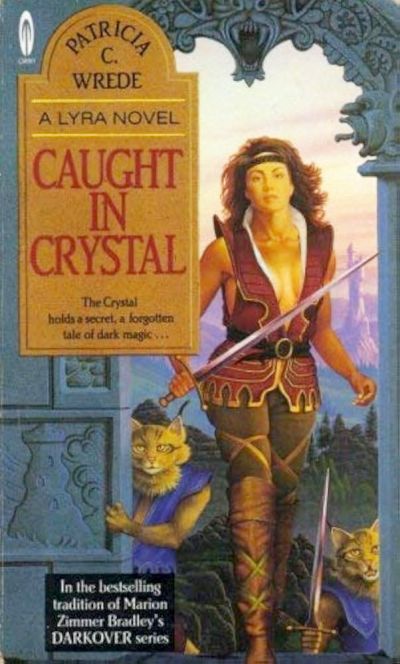 One of my favorite fantasy authors, Patricia C. Wrede [pronounced as “Reedy”] began her writing career in the late 70s; this book, published in 1987, is part of one of her earliest bodies of work, the five-novel Lyra series. However, it’s essentially a stand-alone; though all five of the books are set in the author’s fantasy world of Lyra, they’re all about entirely different sets of characters, widely separated geographically or chronologically (or both –like Tolkien’s Middle Earth, Lyra has a very long fictional history), and are unrelated in their plots.
One of my favorite fantasy authors, Patricia C. Wrede [pronounced as “Reedy”] began her writing career in the late 70s; this book, published in 1987, is part of one of her earliest bodies of work, the five-novel Lyra series. However, it’s essentially a stand-alone; though all five of the books are set in the author’s fantasy world of Lyra, they’re all about entirely different sets of characters, widely separated geographically or chronologically (or both –like Tolkien’s Middle Earth, Lyra has a very long fictional history), and are unrelated in their plots. There are times when I end up asking myself deep philosophical questions, like “Why am I doing this?” or “Isn’t there something else on which I can use my time?” In this case it, was “Who thought a sequel to the painful exercise which was
There are times when I end up asking myself deep philosophical questions, like “Why am I doing this?” or “Isn’t there something else on which I can use my time?” In this case it, was “Who thought a sequel to the painful exercise which was 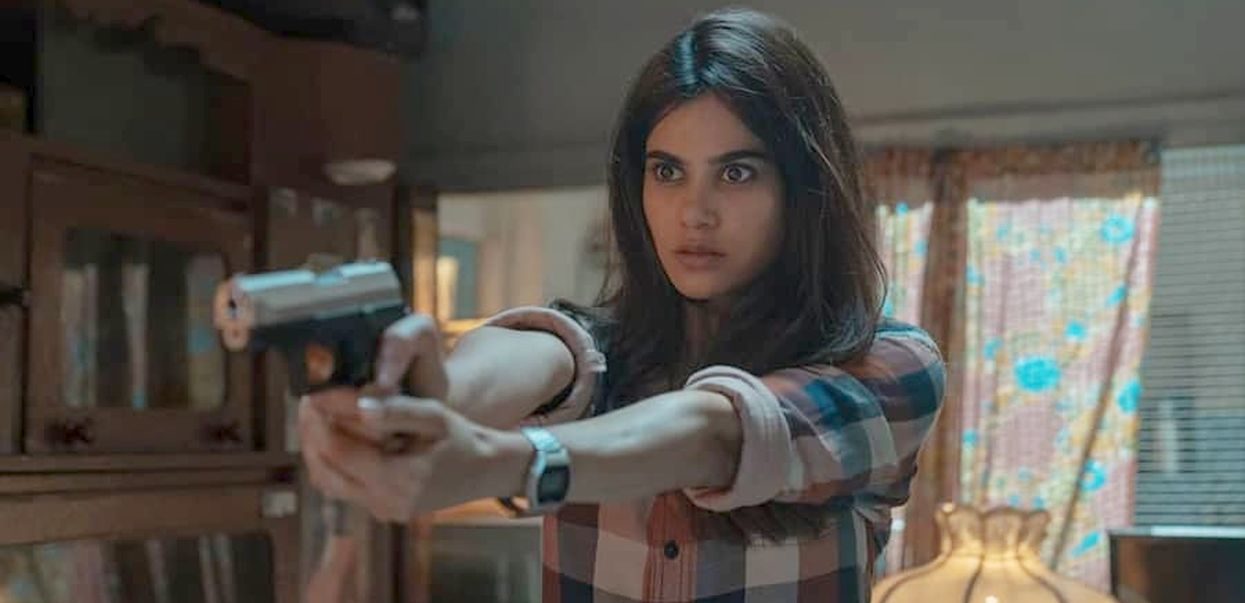 ★★★½
★★★½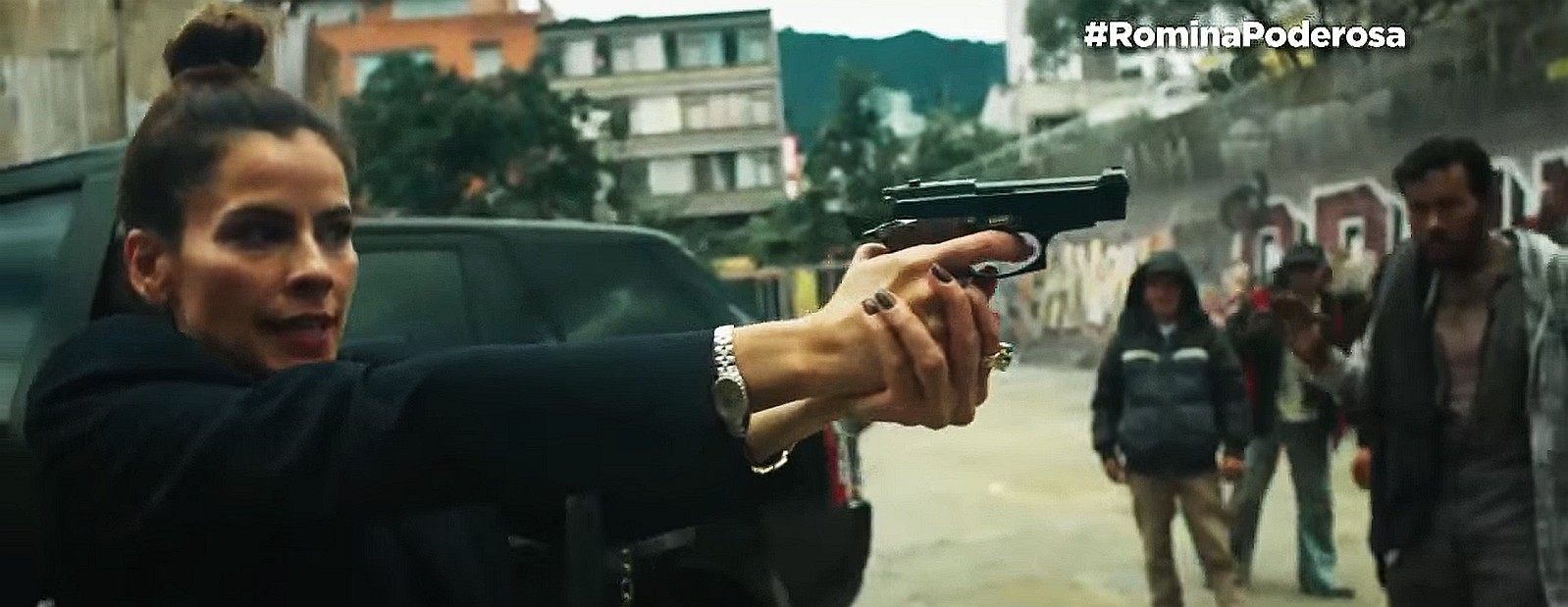 ★★★
★★★ These two elements clash, when the Chitiva brothers order the assassination of Romina and her mother. Except, it’s actually Laura is killed, while visiting her mother in the barrio. Romina escapes, and decides the best option is to pretend to be dead, and indeed, pretend to be Laura. However, Romina/Laura is intent on bringing those responsible for “her” death to justice, and it’s not long before reports of Romina’s ghost haunting her old stomping grounds are passing around. Investigating from the position of law is honest cop Cristobal “Whiz” Ruíz, who eventually comes to know Romina’s secret. But in another twist, the crime lord at the top of the tree, above the Chitivas… is Laura’s mother, Virgina Vélez (León).
These two elements clash, when the Chitiva brothers order the assassination of Romina and her mother. Except, it’s actually Laura is killed, while visiting her mother in the barrio. Romina escapes, and decides the best option is to pretend to be dead, and indeed, pretend to be Laura. However, Romina/Laura is intent on bringing those responsible for “her” death to justice, and it’s not long before reports of Romina’s ghost haunting her old stomping grounds are passing around. Investigating from the position of law is honest cop Cristobal “Whiz” Ruíz, who eventually comes to know Romina’s secret. But in another twist, the crime lord at the top of the tree, above the Chitivas… is Laura’s mother, Virgina Vélez (León).
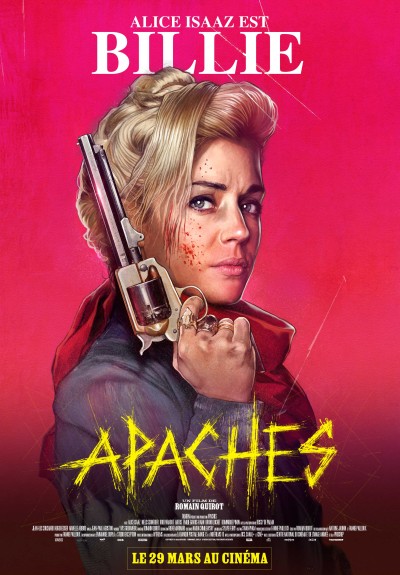 I guess the title is trying to riff off Gang’s of New York, though this is set significantly later. It begins in 1884, when the Apache gang run the Parisian underworld. Young orphans Billie, Paulie and Tricky are on the fringes, until Tricky is killed when forced to play Russian roulette by the gang’s leader, Jésus (Schneider). Billie is framed for the death by a corrupt cop, and spends fifteen years in jail. When she gets out, now a grown woman, Billie (Isaaz) seeks revenge on all those responsible for Tricky’s death, infiltrating the Apaches to get close to Jésus. Matters are complicated, by the presence in the gang of Paulie (Paradot), who was brought up by Jésus, and also by the seductive nature on her of the Apache lifestyle.
I guess the title is trying to riff off Gang’s of New York, though this is set significantly later. It begins in 1884, when the Apache gang run the Parisian underworld. Young orphans Billie, Paulie and Tricky are on the fringes, until Tricky is killed when forced to play Russian roulette by the gang’s leader, Jésus (Schneider). Billie is framed for the death by a corrupt cop, and spends fifteen years in jail. When she gets out, now a grown woman, Billie (Isaaz) seeks revenge on all those responsible for Tricky’s death, infiltrating the Apaches to get close to Jésus. Matters are complicated, by the presence in the gang of Paulie (Paradot), who was brought up by Jésus, and also by the seductive nature on her of the Apache lifestyle.  An early contender for widest gap between synopsis and reality in 2024. On the one hand, we have “After years of torment, Peggy finally gets revenge on all those who wronged her in the past.” On the other? A dumb, microbudget not-a-horror, not anything really. It’s probably most notable for the unexpected appearance of Tom Lehrer on the soundtrack. I guess the basic concept is there. Peggy (Van Dorn) is almost thirty, but still lives at home with her doting dad (Williams). Her main hobby is abducting and torturing those who “wronged her” – though quite what they did to deserve such punishment is never made clear, which makes it kinda hard to feel empathy for her.
An early contender for widest gap between synopsis and reality in 2024. On the one hand, we have “After years of torment, Peggy finally gets revenge on all those who wronged her in the past.” On the other? A dumb, microbudget not-a-horror, not anything really. It’s probably most notable for the unexpected appearance of Tom Lehrer on the soundtrack. I guess the basic concept is there. Peggy (Van Dorn) is almost thirty, but still lives at home with her doting dad (Williams). Her main hobby is abducting and torturing those who “wronged her” – though quite what they did to deserve such punishment is never made clear, which makes it kinda hard to feel empathy for her.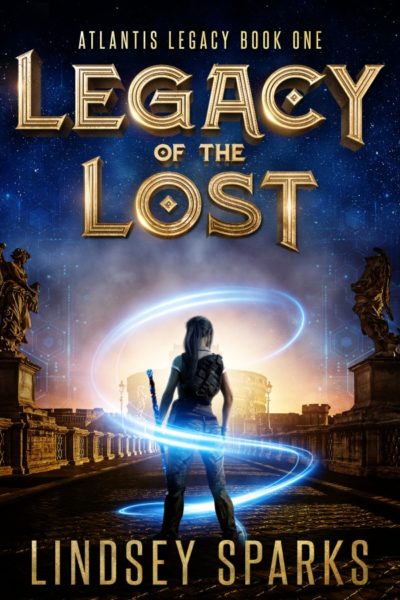 Cora Blackthorn’s teenage life has been severely hampered by an untreatable condition, which triggers a severe, painful reaction any time she has physical contact with another human being. She spends her live sequestered on Orcas Island, off the coast in the Pacific Northwest, but has found solace in the world of online gaming. Her mother, however, is a globe-trotting archaeologist, explorer and… well, let’s be honest, tomb raider. [Small letters, please, to avoid copyright suits] Then, Mom vanishes, the only clue being a cryptic package she sent back to her daughter. Cora now needs to come out of her seclusion, with the help of childhood friend, ex-soldier Raiden, and travel to Rome and the catacombs under the Vatican, in search of the truth about both what happened to her mother, as well as Cora’s own origins.
Cora Blackthorn’s teenage life has been severely hampered by an untreatable condition, which triggers a severe, painful reaction any time she has physical contact with another human being. She spends her live sequestered on Orcas Island, off the coast in the Pacific Northwest, but has found solace in the world of online gaming. Her mother, however, is a globe-trotting archaeologist, explorer and… well, let’s be honest, tomb raider. [Small letters, please, to avoid copyright suits] Then, Mom vanishes, the only clue being a cryptic package she sent back to her daughter. Cora now needs to come out of her seclusion, with the help of childhood friend, ex-soldier Raiden, and travel to Rome and the catacombs under the Vatican, in search of the truth about both what happened to her mother, as well as Cora’s own origins.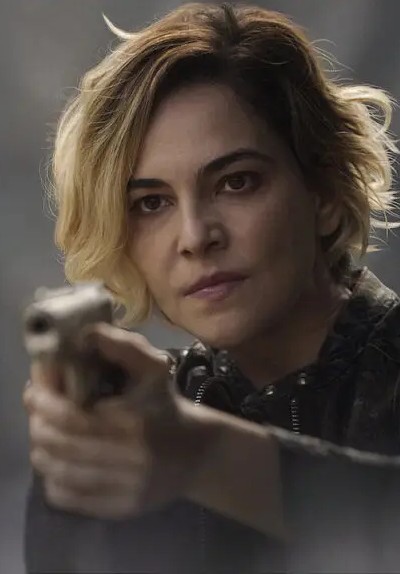 I’ll treat these two seasons as one entity. Indeed, there’s a case to be made that you could include
I’ll treat these two seasons as one entity. Indeed, there’s a case to be made that you could include